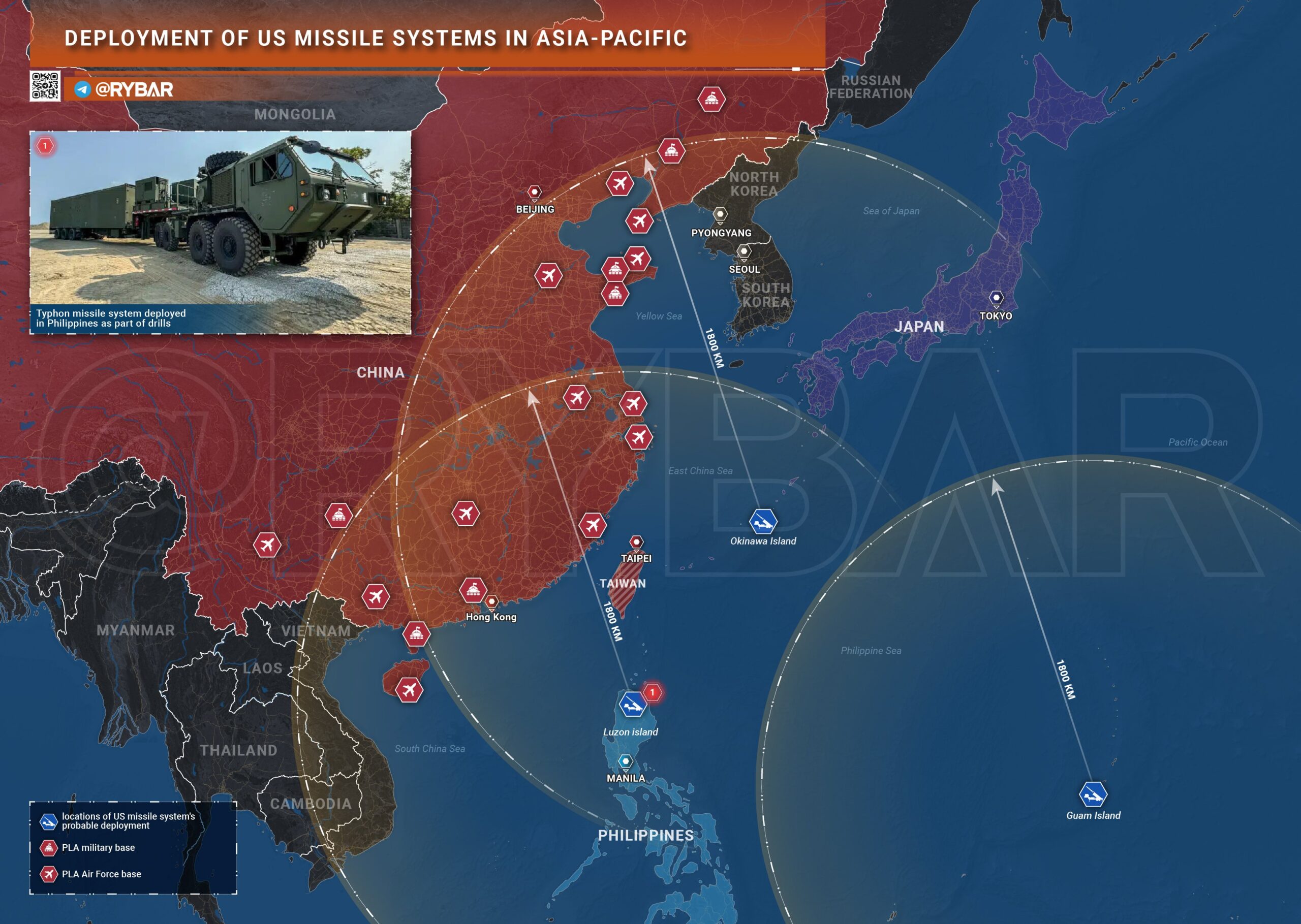Philippines Rejects Chinese Demands: Missile System Remains

Table of Contents
The Philippines' Stance: A Defiance of Chinese Pressure
The deployment of the missile system represents a significant escalation in the Philippines' defense posture against perceived Chinese aggression in the South China Sea. While the exact specifications of the system remain undisclosed for security reasons, reports suggest it's a coastal defense system strategically located in the Spratly Islands, a region claimed by both the Philippines and China. This location is crucial because it sits near vital shipping lanes and resource-rich areas within the disputed waters.
- Capabilities of the Missile System: The system's capabilities likely include long-range detection and precision targeting, bolstering the Philippines’ ability to deter potential incursions. Specific details about range and payload remain classified.
- Government Statement: The Philippine government has issued strong statements reiterating its commitment to defending its sovereign territory and rejecting China's demands to remove the system. These statements emphasize the country's right to self-defense under international law.
- Chinese Demands: China's demands, reportedly conveyed through diplomatic channels, have pressured the Philippines to dismantle the system, citing concerns about regional stability and the potential for escalation. These demands have been categorically rejected.
- Importance for Philippine Defense: This missile system is a critical component of the Philippines' broader strategy to enhance its maritime security capabilities and deter further encroachment in the South China Sea. It strengthens its territorial defense and assertion of its sovereign rights.
Geopolitical Implications: Rising Tensions in the South China Sea
The Philippines' deployment of the missile system adds another layer of complexity to the already volatile situation in the South China Sea. This action directly challenges China's expansive claims in the region, which overlap with the territories of several other Southeast Asian nations. The move is likely to further strain Sino-Philippine relations and potentially escalate tensions across the region.
- China's Claims: China asserts its claim over nearly the entire South China Sea based on its historical interpretation of the "nine-dash line," a demarcation not recognized by international law.
- Other Countries Involved: Besides the Philippines and China, Vietnam, Malaysia, Brunei, and Taiwan also have competing claims in the South China Sea, making the region a hotspot for potential conflict.
- Potential for Escalation: The deployment of the missile system increases the risk of military miscalculation or accidental escalation. Increased naval activity and heightened rhetoric could further destabilize the region.
- International Law and Treaties: The Philippines' action is framed within the context of international law, specifically the United Nations Convention on the Law of the Sea (UNCLOS), which China has also ratified, but whose provisions it often ignores.
International Reactions: Global Responses to the Dispute
The Philippines' decision to deploy the missile system has drawn varied responses from the international community. While some countries have expressed concern about the potential for escalation, others have voiced support for the Philippines' right to self-defense.
- Allies' Statements: The United States, a key ally of the Philippines, has reaffirmed its commitment to the country's defense and its right to protect its sovereign territory. Other ASEAN nations have also expressed a range of opinions, with some expressing concerns while others remain neutral.
- Increased Military Exercises: There's potential for an increase in joint military exercises between the Philippines and its allies, particularly the US, in the region as a show of force and deterrence.
- UN Reaction: The United Nations has yet to issue a formal statement directly addressing the missile system deployment but has repeatedly called for peaceful resolution of disputes in the South China Sea.
- Diplomatic Efforts: Diplomatic efforts are likely to intensify, with various countries and international organizations attempting to de-escalate the situation and facilitate dialogue between the Philippines and China.
The Economic Angle: Potential Impacts on Trade and Relations
The standoff between the Philippines and China over the missile system also has significant economic implications. The South China Sea is a vital trade route, and any escalation could disrupt shipping lanes and negatively impact both countries' economies.
- Disruptions to Trade Routes: Increased tensions could lead to disruptions in shipping, potentially increasing costs for goods and services traveling through the South China Sea.
- Impact on Tourism and Investment: The uncertainty surrounding the situation could negatively affect tourism and foreign investment in both countries.
- Economic Dependencies: Both countries have economic ties that could be strained by this dispute. China is a major trading partner of the Philippines.
Conclusion
The Philippines' steadfast refusal to bow to Chinese demands regarding its missile system deployment underscores its determination to protect its sovereignty and territorial integrity. This bold move has significant geopolitical implications, potentially escalating tensions in the already volatile South China Sea. International reactions will play a crucial role in shaping the future trajectory of this dispute. Understanding the complexities of the Philippines China Missile System situation is vital for comprehending the evolving dynamics of power in the Asia-Pacific region. Staying informed on further developments related to the Philippines China Missile System is crucial for understanding the future of regional stability. Keep following news sources for updates on this developing Philippines China Missile System situation.

Featured Posts
-
 Activite Portuaire D Abidjan Croissance Stable En 2022
May 20, 2025
Activite Portuaire D Abidjan Croissance Stable En 2022
May 20, 2025 -
 Analysis Of The Old North State Report May 9 2025
May 20, 2025
Analysis Of The Old North State Report May 9 2025
May 20, 2025 -
 Three Scorpion Stings The Will Trent Stars Unbelievable Night
May 20, 2025
Three Scorpion Stings The Will Trent Stars Unbelievable Night
May 20, 2025 -
 Eksereynontas To Oropedio Evdomos Tin Protomagia Pliris Odigos
May 20, 2025
Eksereynontas To Oropedio Evdomos Tin Protomagia Pliris Odigos
May 20, 2025 -
 Tampoy Mega Ploki Kai Anatropes Sto Apopsino Epeisodio
May 20, 2025
Tampoy Mega Ploki Kai Anatropes Sto Apopsino Epeisodio
May 20, 2025
